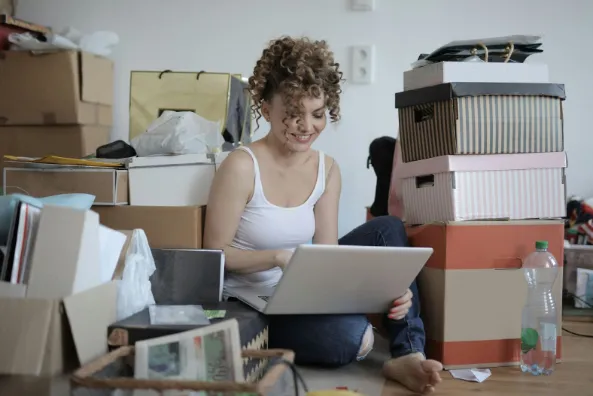Last updated on July 20th, 2025 at 03:30 am
Let’s be honest—when your space is a mess, your brain kind of feels like a mess too. You might not notice it at first, but little things start creeping in: trouble focusing, getting irritated for no reason, feeling weirdly tired even after a chill day. That pile of clothes in the corner or those random papers on the table? Yeah, they might be messing with your head more than you think.
Clutter isn’t just stuff lying around—it’s a whole mood. It quietly eats at your energy, weighs you down, and adds to that constant feeling like you’ve got too much on your plate. You might be watching a movie, answering emails, or even playing a game like online casino teen patti to unwind, but something still feels off. That something might just be the chaos sitting around your space.
Let’s break down why clutter hits harder than expected—and how small changes can clear the fog.
So, What Counts as Clutter?
It’s not just trash or dirty dishes. Clutter is anything hanging around that no longer serves you. Think: stuff you don’t use, things you meant to deal with weeks ago, that drawer full of chargers from phones you no longer own. Even digital clutter—like 85 open tabs or apps you forgot existed—counts.
The problem isn’t the “stuff” itself. It’s the fact that your brain has to deal with it every time it sees it. Whether you notice or not, it adds to the mental load.
Why It Drains You
Ever tried to work or relax in a messy room? It’s tough. Your brain’s constantly scanning the mess and low-key saying, “You should probably handle that.” Even if you push through, there’s this quiet pressure in the background.
It’s like trying to concentrate while someone whispers in your ear nonstop. That’s why clutter leads to mental fatigue. You’re burning energy just by being in the space, before you even start doing anything.
The Stress Connection
There’s actually science behind it. Studies show cluttered spaces are linked to higher levels of cortisol—that’s your stress hormone. So even if you think you’re cool with the mess, your body might not agree.
Your brain sees disorder as a to-do list you haven’t touched. It triggers that low-key stress response, and over time, that wears you down. No wonder you feel on edge for no clear reason.
Guilt, Pressure, and All That Emotional Baggage
Some stuff sticks around not because you need it, but because you feel bad getting rid of it. Maybe it was a gift, or it cost a lot, or you feel like you “should” use it someday. But every time you see it, you’re reminded of that guilt or regret. That’s emotional clutter—and it’s sneaky.
Your space starts feeling less like yours and more like a museum of stuff you feel weird about. That disconnect makes it harder to feel relaxed or clearheaded.
You’re Always Making Micro-Decisions
Should I fold that laundry? Where do I even put those cords? Should I clean that corner now or later?
Each question seems tiny, but your brain’s answering dozens of them all day long if your space is cluttered. That’s decision fatigue in action. By the time you actually sit down to work or chill, your mental battery’s already running low.
Okay, So What Can You Actually Do?
You don’t need to deep-clean your entire life overnight. That’s overwhelming—and kind of impossible if we’re being real. But here’s what you can do:
1. Pick One Spot
Clear off a nightstand, a corner of your desk, or even your car’s cup holders. Keep it super small. Seeing just one clean space can give your brain a breather.
2. Ask One Simple Question
When deciding whether to keep something, ask: Would I miss this if it were gone? If the answer’s no, maybe it’s time to let it go.
3. Build a 5-Minute Reset
Before bed or after work, spend five minutes putting stuff back where it belongs. Not perfect—just better. That tiny habit adds up fast.
4. Don’t Try to “Organize” Junk
Organizing stuff you don’t use is just moving clutter around. Be honest about what needs to go before worrying about fancy bins and labels.
Let Your Space Reflect You
At the end of the day, your space should support your life—not stress you out. You don’t need a Pinterest-worthy setup. You just need a spot that lets you breathe, think, and focus without background chaos.
A clearer space makes space for other good things—like actual rest, creativity, better focus, and yeah, more enjoyment from the things you love doing. Whether that’s reading, working, gaming, or just sitting in silence, it hits different when the space around you isn’t screaming for your attention.
Final Thought
Clutter is one of those things that seems harmless until you notice how much it’s messing with your head. But the good news? You can take it on one small step at a time.
You don’t have to aim for perfection. Just aim for a little less noise—visually and mentally. Because when your surroundings are clearer, your mind tends to follow. And that makes everything—from focus to relaxation—a whole lot easier.

